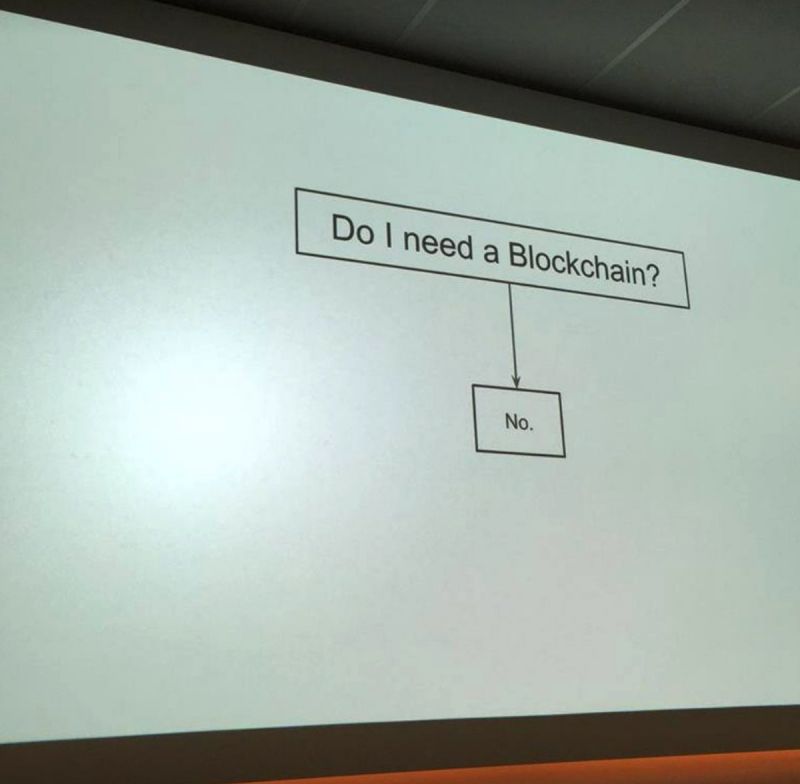Ranter
Join devRant
Do all the things like
++ or -- rants, post your own rants, comment on others' rants and build your customized dev avatar
Sign Up
Pipeless API

From the creators of devRant, Pipeless lets you power real-time personalized recommendations and activity feeds using a simple API
Learn More
Comments
-
Post-quantum cryptography is an active field of research and it is far more advanced than the current state of quantum cryptography. The NIST has just announced its selections of post-quantum algorithms (https://csrc.nist.gov/projects/...). While we do have a quite large amount of Qubits announced for the near future (IBM announced 1000 for this year), the error rate is far to high (https://doi.org/10.1038/...).
The other cryptographic "leg" of blockchain (hashes) are not really harmed by post-quantum cryptography.
If (current) asymmetric cryptography is broken, our problems would be far worse anyway, as the security properties of many real world protocols would be void.
---
Cryptography aside, are the *current* problems of the so-called Web 3 even solvable? E.g. Trustworthy interaction with the "real" world (Sybil attacks, Oracles), the security of smart contracts (public attack surface together with difficult updates. -
 ars138163yJust kill blockchain already please. The amount of MBAs and hold diggers that came to plague tech even more are all terrible.
ars138163yJust kill blockchain already please. The amount of MBAs and hold diggers that came to plague tech even more are all terrible. -
 JsonBoa31343yTaking it out of the way: Web3.0 is most definitely just a marketing buzzword to cover up a scam, but we all know how vulnerable the most insipid parts of companies are to this sort of siren song.
JsonBoa31343yTaking it out of the way: Web3.0 is most definitely just a marketing buzzword to cover up a scam, but we all know how vulnerable the most insipid parts of companies are to this sort of siren song.
Thus testing arguments on why it is impractical (without using the word "scam") is an worthy exercise.
Now, @sbiewald raises a very interesting point: Given that post-quantum cryptography is in such an advanced state, CA-based protocols (like GIT and HTTPS) could be upgraded by their industry leaders when needed. Just make it another major upgrade of Chrome or the Linux kernel something similar.
However, vendor-less 0-trust systems would have yet another bad time on coordinating a no-authority upgrade. Who would choose the exact algorithm? And it's implementation and deployment?
Besides the porting of the ledger itself, in the case of blockchains. Would the chain have to be started all over again, thus rendering the coins even more worthless, somehow?
Good answers beget more questions :) -
@JsonBoa The ledger "reversal protection" is based on a hash function. As long as data was valid back when a block was created, the transaction will remain valid. Nevertheless all assets of pre-quantum wallets should be transferred to post-quantum wallets before quantum computing.
Special transaction semantics can be added to the protocol to add post-quantum keys to an existing pre-quantum keypair.
The ledger format itself does not necessarily need to be changed for this, and backwards compatible extensions were introduced on large blockchains for quite a time - sometimes requiring a hard fork nonetheless.
The success of this extension is decided whether the majority of nodes implement this extension or not.
By the way: Git is not "CA based". It is a ledger (like a blockchain but without signatures and proof of ...) and transactions can be transferred over any channel (HTTP(S), SSH, any file system, Email, git wire protocol).
Related Rants

 Given the latest trend, i thought you guys might like this : https://twitter.com/steevedrew/...
Given the latest trend, i thought you guys might like this : https://twitter.com/steevedrew/... BLOCKCHAIN?
BLOCKCHAIN? .... blockchain hype.. 😂😂🤣
.... blockchain hype.. 😂😂🤣
I've been reading about quantum computing in finance and other applications (fascinating read, althought really dense), but one question now won't stop bugging me.
Context:
1) Blockchain applications are based on NP-Hard asymmetric cryptographic problems, and how hard it is to solve such problems in a really short time.
2) So called "Web3.0" is based mostly on Blockchain applications, but would still need significant advances in order to be practical.
3) Affordable and practical cloud-based quantum computing is not so far in the future, and could be used to crack most NP-Hard problems in short (polynomial) time.
Thus, my question: Is Web3.0 obsolete before it even begun?
I mean, if quantum computing takes on fast enough, it could snuff out Blockchain applications by giving those a shelf life so short it wouldn't be worth to delevolp for it. It would be like announcing the iPhone 14 and the 15 on the same breath, saying the 15 is only a quarter away - why would anyone bother with the born-obsolete tech?
question
quantum computing
blockchain
web3.0